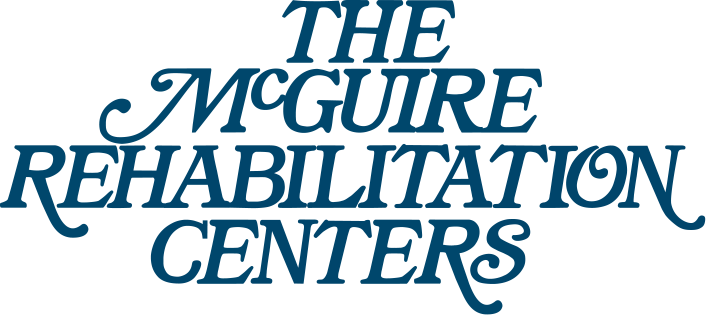Meth Addicts Minong WI
Home
Best Meth Addicts Minong WI Info
Meth Addicts Minong WI
Inpatient Addictions, General – Child/Youth Life can be hard enough watching your child, or a child you care for, struggling through a battle with addiction. Where do parent turn when their teens are out ofcontrol? We are passionate about saving the lives of those afflicted by this life threatening disease and in reuniting families and loved ones.
Addiction hotline representatives are trained to recognize the signs and symptoms of drug dependence and addiction. Search options allow certain requirements to be notated based on the individual’s requirements. There is no better venue anywhere for experiential care than the mountains of Sundance, Utah! For legal drugs such as alcohol, complete abstention—rather than attempts at moderation, which may lead to relapse—is also emphasized ("One is too many, and a thousand is never enough.") Whether moderation is achievable by those with a history of abuse remains a controversial point, but is generally considered unsustainable.[2] Types of treatment[edit] The brain’s chemical structure is impacted by drugs of abuse and these changes are present long after an individual stops using, This change in brain structure increases risk for relapse, making treatment an important part of the rehabilitation process.[3] Various types of programs offer help in drug rehabilitation, including: residential treatment (in-patient/ out-patient), local support groups, extended care centers, recovery or sober houses, addiction counselling, mental health, and medical care. Proposed models of affect-driven tobacco use have focused on negative reinforcement as the primary driving force for addiction; according to such theories, tobacco is used because it helps one escape from the undesirable effects of nicotine withdrawal or other negative moods.[38] Acceptance and commitment therapy (ACT), is showing evidence that it is effective in treating substance abuse, including the treatment of poly-substance abuse and cigarette smoking.[39][40] Mindfulness programs that encourage patients to be aware of their own experiences in the present moment and of emotions that arise from thoughts, appear to prevent impulsive/compulsive responses.[38][41] Research also indicates that mindfulness programs can reduce the consumption of substances such as alcohol, cocaine, amphetamines, marijuana, cigarettes and opiates.[41][42][43] Behavioral models[edit] Behavioral models make use of principles of functional analysis of drinking behavior. In this article we cover the following topics: Who you’ll be speaking with on the hotline.
Even more Information About Butalbital Addiction Rehab Facilities

A lot more Resources For Focalin Rehab Center Minong WI
In fact, readiness for change is CRUCIAL FOR DRUG REHAB SUCCESS. I did 'em, I did 'em yesterday while you were still in bed.
A lot more Resources For Music Rehab
Alcohol abuse is very common throughout this Texas city. There are diverse rehab programs available by different rehab centers and all of them follow various recovery techniques for substance abuse treatment. Risk factors for drug addiction While anyone can develop problems from using drugs, vulnerability to substance addiction differs from person to person. The addict then carries this message to other people and continues to practice these principles. Professionals work with patients throughout this process to make withdrawal symptoms as minimal as possible. Locations in Arizona, California, Colorado, Indiana, Louisiana, Nevada, New Mexico,.
More Info Around Butalbital Addiction Rehab Facilities Minong WI
Fairly the contrary, you will certainly continue to be able to obtain the necessary support you desire. Christian and other faith-based healing programs can be found in a number of rehab centers. We believe these therapies, in this addiction treatment setting, is essential, if one is to regain their health. Cocaine is one of the major threats here as it is abused by a large number of people. Christian addiction treatment centers are like 12 step programs in many ways with a heavier emphasis on religion and faith. The Sun (2012) But the mum-of-one wasn't an illegal drug addict. What to Expect from Christian Rehab Drug Rehab Center centers in Texas typically accept everyone, Christian or otherwise. 12-Step programs and non-religious self-help and support groups: While these groups are not recommended as a sole treatment mode for addiction, they are a strong means of support for ongoing recovery during and after rehab.
Click Here for More Information
Previous Next
You may also like:
Christian Alcohol Rehab Centers Phoenix AZ
Heroin Rehab Treatment Centers Bethel MO
Roxicet Addiction Clinics Deary ID
Symtan Rehab For Addiction Nehalem OR
Actiq Detox Treatment Center Rebuck PA
Methamphetamine Rehab Facility Near Me Woodruff WI
90 Day Inpatient Rehab Ralston PA
Non Twelve Step Treatment Programs Lott TX
Hycodan Rehab Treatment Program West Leisenring PA
Ambien Detox Near Me Fosters AL
Norco Detox Treatment Program Palestine TX
Codeine Addiction Detox Clinic Beaver Crossing NE
Amphetamines Abuse Program Playas NM
Rohypnol Detox Treatment Center Gypsum OH
Amytal Rehab Facility Fertile IA
Norco Addiction Treatment Facilities Anna OH
Dilaudid Detox Center Hope KS
Benzos Rehab Programs Cairo GA
Duragesic Detox Treatment Clinic Wilmot OH
Lsd Abuse Facility Grand Forks Afb ND